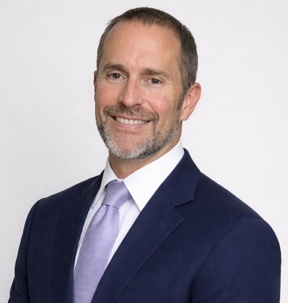What Does It Mean to “Declare Bankruptcy” in Florida? A Clear Guide for Brevard County Residents
Filing for bankruptcy often feels like a last resort, but for many people in Melbourne, Palm Bay, Titusville, and across Brevard County, the phrase “declare bankruptcy” simply means asking a federal court for a fresh financial start. If you’re drowning in credit card bills, medical debt, foreclosure threats, or wage garnishment, understanding exactly what it means to declare bankruptcy can remove the fear and mystery—and help you decide if it’s the right step.
Calendar a Free 30-Minute Phone Consultation
So, What Does “Declare Bankruptcy” Actually Mean?
When someone says they want to “declare bankruptcy,” they are starting a legal process under the U.S. Bankruptcy Code. You file a petition with the federal bankruptcy court (for Brevard County residents, that’s the Middle District of Florida in Orlando) asking the court to either:
- Wipe out (discharge) most or all of your unsecured debts (Chapter 7), or
- Reorganize and repay a portion of your debts under a court-approved plan while keeping your property (Chapter 13, and sometimes Chapter 11 or 12).
Declaring bankruptcy immediately triggers the “Automatic Stay”—a powerful federal injunction that stops virtually all collection actions: lawsuits, foreclosures, repossessions, garnishments, and even harassing phone calls.
The Two Most Common Types of Bankruptcy for Individuals in Brevard County
Chapter 7 Bankruptcy – The “Fresh Start” or “Liquidation” Bankruptcy
- Most debts (credit cards, medical bills, personal loans, some taxes, etc.) are completely erased in 4–6 months.
- You may keep exempt property (Florida has generous homestead, vehicle, and personal property exemptions).
- Non-exempt assets (second homes, boats, expensive jewelry, etc.) may be sold by a trustee to pay creditors.
- Best for lower-income households who don’t have significant non-exempt assets.
- Current 2025 median income limits for a Florida household of 4 is about $98,000—if you’re below that, you usually pass the means test automatically.
Chapter 13 Bankruptcy – The “Wage Earner’s Plan” or Reorganization
- You keep all your property and repay a portion of your debts (sometimes as little as 1–10%) over 3–5 years.
- Ideal if you’re behind on a mortgage or car loan and want to catch up, or if you have valuable non-exempt assets you don’t want to lose.
- Common for Brevard County residents who have steady income but need breathing room from overwhelming debt.
Calendar a Free 30-Minute Phone Consultation
What Happens When You Officially “Declare Bankruptcy”?
- Free consultation with a bankruptcy attorney (yes, most Melbourne and Brevard County attorneys offer this).
- Credit counseling (about an hour online—required).
- Your attorney prepares and files the petition, schedules, and statements (200+ pages of financial disclosure).
- Automatic stay goes into effect the moment the case is filed.
- You attend a quick 5–10 minute Meeting of Creditors (341 meeting) about 30–45 days later—usually by phone or Zoom in the Middle District.
- In Chapter 7: 60 days after the 341 meeting, you receive your discharge. In Chapter 13: You make plan payments and receive discharge after 3–5 years.
Common Myths About Declaring Bankruptcy in Florida
- Myth: “I’ll lose everything I own.”
Reality: Florida’s exemptions are some of the strongest in the nation. Most people who file Chapter 7 in Brevard County lose nothing. - Myth: “Bankruptcy ruins my credit forever.”
Reality: A bankruptcy stays on your credit report for 7–10 years, but most clients see their score start climbing within 12–24 months because debt-to-income ratio improves dramatically. - Myth: “I can’t file if I own a house.”
Reality: Florida’s homestead exemption is unlimited—if your home is on less than half an acre inside a municipality (or 160 acres outside), it’s 100% protected.
Why Location Matters: Filing in Melbourne & Brevard County
Brevard County residents file in the Orlando Division of the Middle District of Florida. Local trustees and judges are familiar with Space Coast cost-of-living and property values, which can make a difference in Chapter 13 plan calculations and exemption planning. An experienced Melbourne, Florida bankruptcy attorney who appears regularly in the Orlando courthouse knows the trustees’ preferences and local rules—details that can save you thousands.
Is Declaring Bankruptcy Right for You? Ask yourself:
- Are collectors calling nonstop?
- Are you facing foreclosure on your Cocoa Beach or Viera home?
- Is wage garnishment taking 25% of your Kennedy Space Center or Port Canaveral paycheck?
- Do you have more than $10,000–$15,000 in dischargeable debt with no realistic way to pay it off in 3–5 years?
If the answer is yes to any of these, declaring bankruptcy may be the fastest, most effective way to regain control.
Take the First Step – It Costs Nothing to Find Out
Most reputable Melbourne and Brevard County bankruptcy attorneys offer a free, no-pressure consultation. You’ll leave knowing exactly what chapter you qualify for, what property you can keep, and what your fresh start will look like. If you live in Melbourne, Palm Bay, Titusville, Cocoa, Merritt Island, Rockledge, Satellite Beach, or anywhere else in Brevard County and you’re ready to stop the stress, reach out to a local bankruptcy attorney today. Declaring bankruptcy isn’t giving up—it’s the legal tool Congress created to give honest people a second chance.

